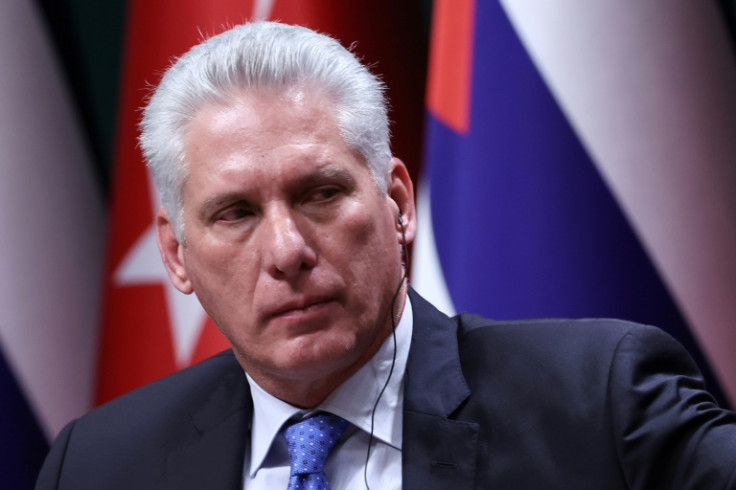
Following days of protests in Cuba, the island's President Miguel Diaz-Canel accuses the U.S. of firing up protesters. He also blasted the States as "interventionists" and for having "contempt" toward the Cuban people and the Cuban revolution in an interview with NBC News on Tuesday.
Meanwhile, the U.S. State Department's spokesman Vedant Patel called the accusations "absurd" on Monday. He added that the unrest "was a reflection of the dire situation on the island."
A rare occurrence in Cuba, protesters gathered in several cities and towns across the island, including Santiago de Cuba, the country's second-largest city in the past week. The demonstrations were sparked by anger over hours long blackouts and food shortages.
The country has been hit by blackouts since the beginning of the month while maintenance work is being carried out on the Antonio Guiteras thermoelectric plant.
Responding to the State Department's comments, Diaz-Canel said: "They're always looking for justifications and turning things around. The most absurd thing is that they have applied a criminal blockade against us for more than 65 years. That is the absurdity."
The President continued by saying that what sparked the protests was actually the U.S. blockade, not the power outages.
Nevertheless, several videos shared on social media shows protesters demanding freedom and "Patria y Vida" (fatherland and life), a play on the island's revolutionary slogan "Patria o Muerte" (fatherland or death).
"We are free, sovereign and independent, and we are going to continue building our revolution, despite the tightening of the blockade, despite the fact that we have been included on a spurious list that can only be invented by a government as genocidal and as hegemonic as the government of the United States," Diaz-Canel said, referring to the U.S. including Cuba as one of four countries it considers to be state sponsors of terrorism, along with North Korea, Iran and Syria.
As per the protests, Diaz-Canel told NBC News that the protests were peaceful, but they were made to look like "serious events," adding that more violently repressed protests take place around the world, including the U.S.
U.S.' economic sanctions in Cuba have been in place for over 60 years, initially starting as a response to Castro's confiscation of U.S. businesses and properties after the 1959 revolution, according to NBC. Throughout the years, the U.S has continued to modify the embargo with laws that have made it complex.
Many economists agree that the embargo has been damaging to Cuba's economy, but they also point to Cuba's Soviet-style, centralized economy, NBC reports.
"U.S. sanctions have an impact, but Cuba's mismanagement of its most productive sectors is a primary driver of Cuba's current economic crisis," a U.S. official said.
They added that only Congress can lift the embargo and that last year, the U.S. exported nearly $336 million in agricultural goods and authorized $100 billion more in humanitarian exports or donations, "demonstrating the goodwill of many Americans who want to help the Cuban people."
© 2024 Latin Times. All rights reserved. Do not reproduce without permission.







